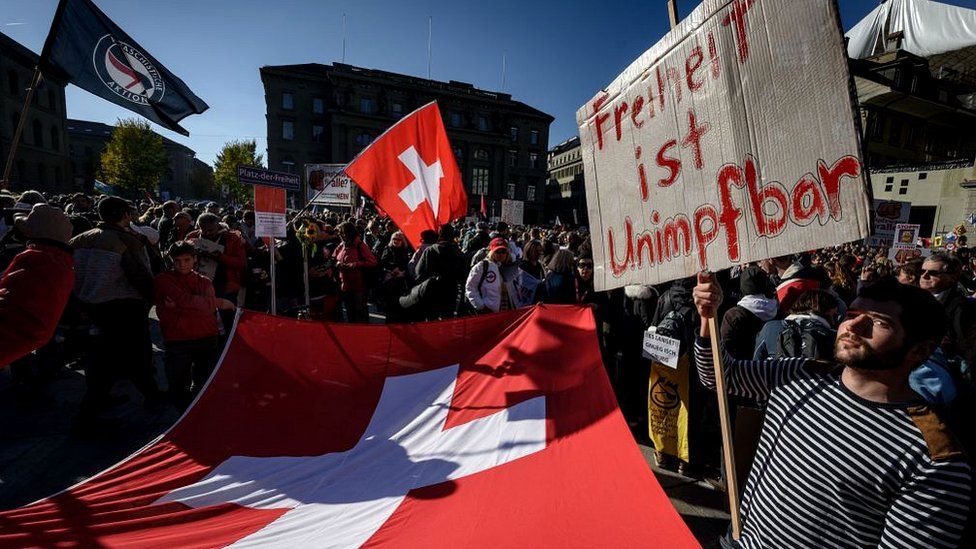
Swiss Health Minister Alain Berset is in a bit of bind.
With just under two-thirds of the population fully vaccinated, the Swiss have one of the lowest vaccination rates in Western Europe.
Now, Covid-19 infections are rising exponentially, with case numbers rising by 40% to 50% each week.
So is the health minister planning new restrictions, like neighbouring Germany, or even making vaccination mandatory, like Austria?
Not a bit of it. In fact, on Sunday, Switzerland votes on getting rid of some Covid restrictions altogether.
From the start of the pandemic the Swiss government has performed a tricky balancing act, trying to introduce measures to control the spread of Covid, while still staying true to Switzerland’s system of direct democracy, in which the government has little formal power and the people have the final say.
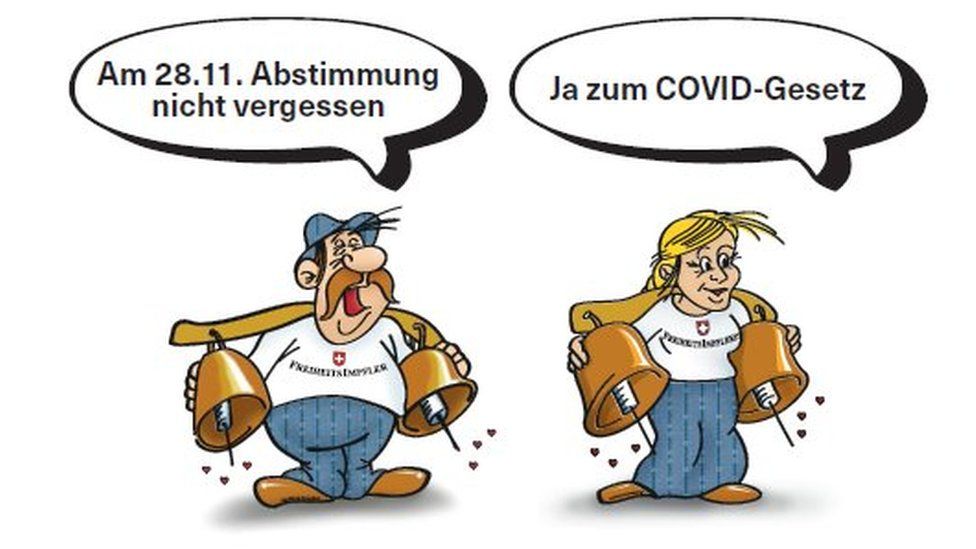
Switzerland’s lockdowns were never as strict as its neighbours. People were allowed outside for exercise whenever they wanted and the schools only closed for a few weeks.
But last summer, with cases falling dramatically, Switzerland didn’t have a celebratory, UK-style “freedom” day either.
Instead, a Covid certificate was introduced with proof of vaccination, negative test, or immunity through having had the virus. In September it became obligatory to enter bars, cafes, restaurants, cinemas, museums, sporting events, and face-to-face university classes.

But not everyone agrees.
Vaccination has long been a sensitive issue here, especially in German-speaking Switzerland. A belief that natural immunity is best led to a drop in childhood measles vaccinations that sparked a surge in measles cases across Europe.
Meanwhile, in the alpine communities, a historic pride in their own independence rooted, some say, in the time when the mountain villages were cut off from the world each winter, means there is resistance to the government issuing orders.
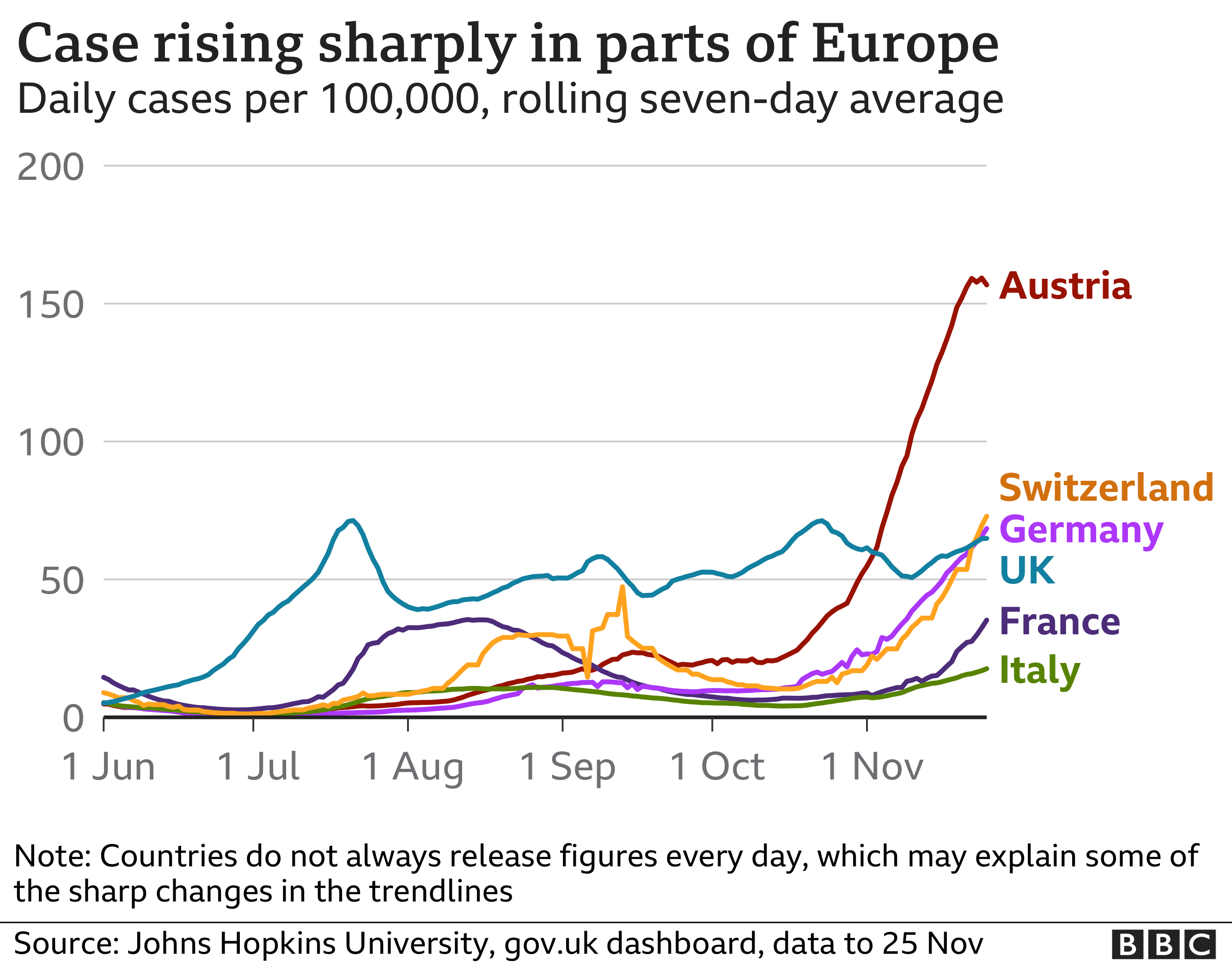

And so, when the certificate was introduced and Covid tests stopped being free, life for the unvaccinated became difficult and even going out for a beer was suddenly expensive.
The government hoped the measures would encourage people to get vaccinated. Instead, many took to the streets and others gathered enough signatures to challenge the Covid certificate in Sunday’s referendum.
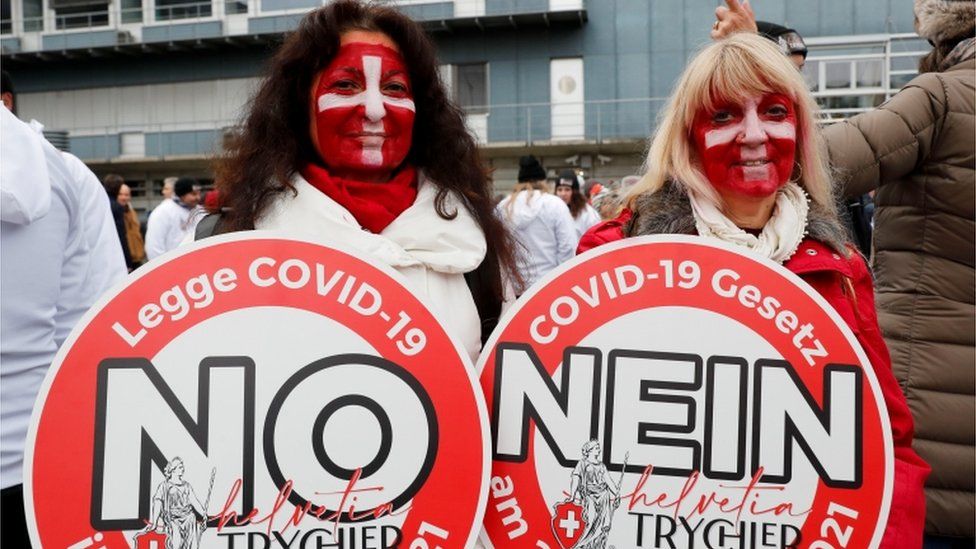
For weeks there have been demonstrations. Some have turned violent, with police using water cannons and rubber bullets against protesters trying to storm parliament.
At a rally in Bern this month, thousands turned out to hear speakers, including renowned anti-vaxxer Robert Kennedy Jr, who hailed Switzerland as Europe’s last great hope against what he claimed were sinister powers forcing people to get vaccinated, while at the same time, via the Covid certificate, introducing a draconian mass surveillance system.
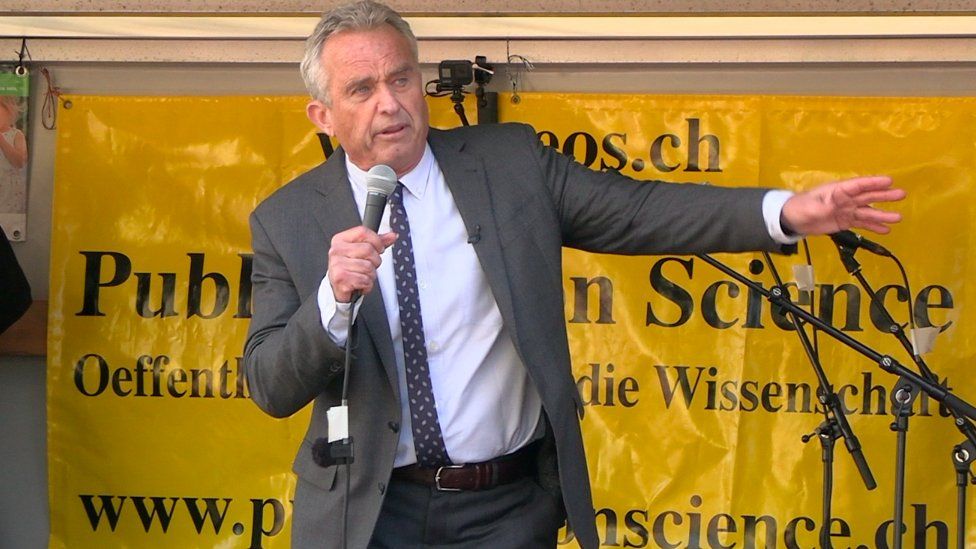
The crowd, huddled together, all mask-less, roared their approval.
Some wore the insignia of the far right, others the far left. Health minister Alain Berset was depicted, complete with red horns, as the devil.
Among the crowds was part-time student Manuela. She refuses to get vaccinated because, she says, she is “a healthy young woman” for whom getting the virus poses little risk.

In fact, the World Health Organization advises that, while young people are less likely to be hospitalised with Covid-19, they are still susceptible to infection, and with it the risk of serious and long term health consequences.
Prepare the hospitals
And so, for fear of increasing opposition to the Covid certificate, the health minister dare not introduce any new restrictions ahead of Sunday’s crucial vote.
Mr Berset and his science taskforce are convinced Switzerland needs infection control measures during this increasingly bleak Covid winter. A vote to abolish the certificate, they believe, could be a huge risk, especially as booster vaccinations have scarcely begun.
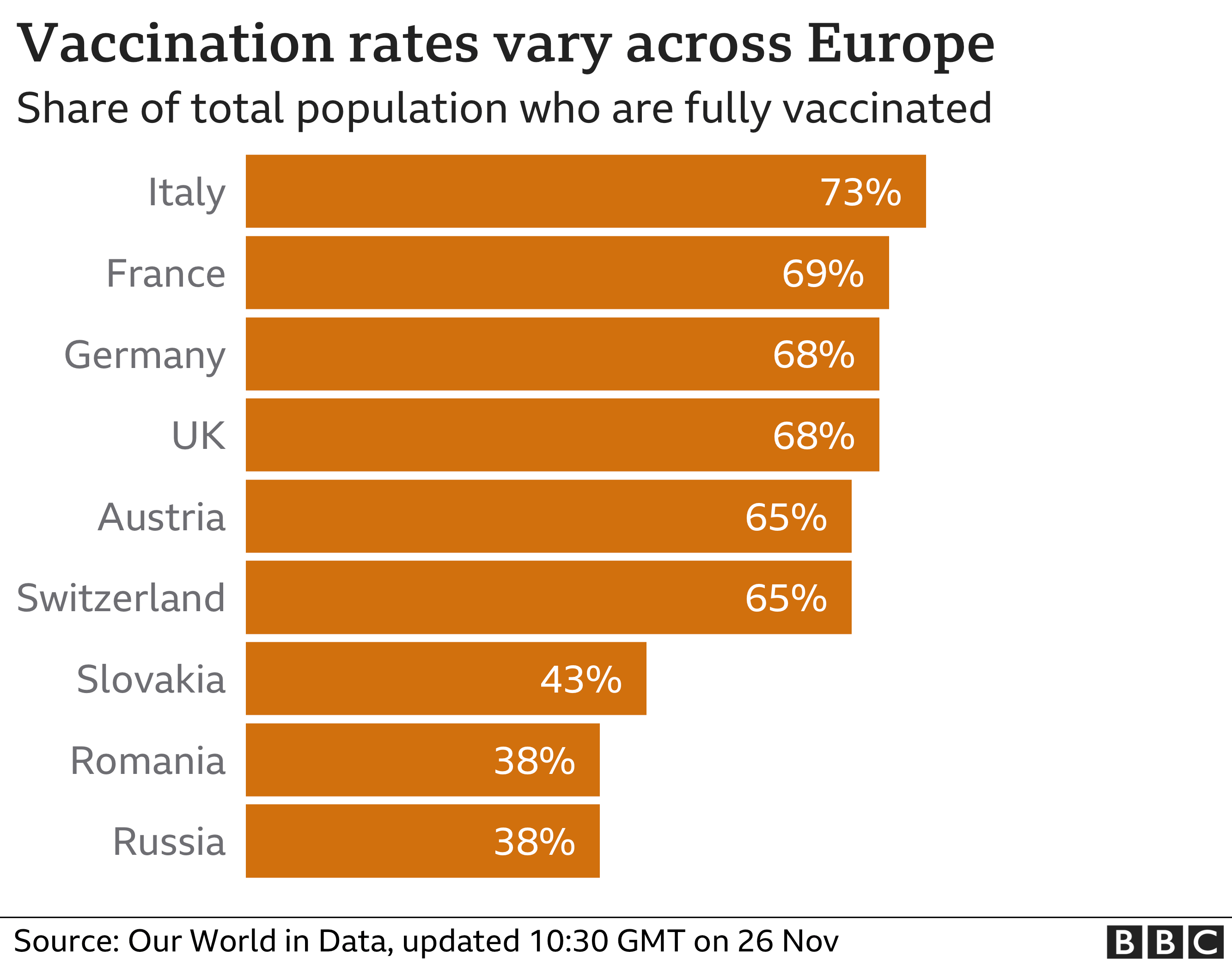

Instead, as cases rise, the government has advised hospitals to increase their intensive care capacity. This has brought a bitter laugh from Switzerland’s nurses, who point out that extra beds won’t help when there aren’t enough staff to look after the patients in them.
It’s estimated 10% of Swiss nurses and care workers have left the profession since the start of the pandemic.
“Everywhere we have too few staff,” says Michèle Giroud, a nurse who’s also president of the Swiss Federation of Nurse Anaesthetists. “We are constantly working without breaks, doing overtime, extra shifts. A third of us have burn-out symptoms: anxiety or insomnia.”
But unlike in other European countries going through similar health sector shortages, Swiss nurses have the power to change things. They have gathered the signatures for a nationwide referendum demanding more investment and better working conditions.
On Sunday, Swiss voters will decide on that too.
Opinion polls suggest the pandemic has focused voters’ minds on how important their health workers are – almost 70% say they will vote yes to the nurses’ demands.
On the Covid certificate, things are a little tighter, but around 60% of voters look set to back keeping the certificate, and with it the restrictions.
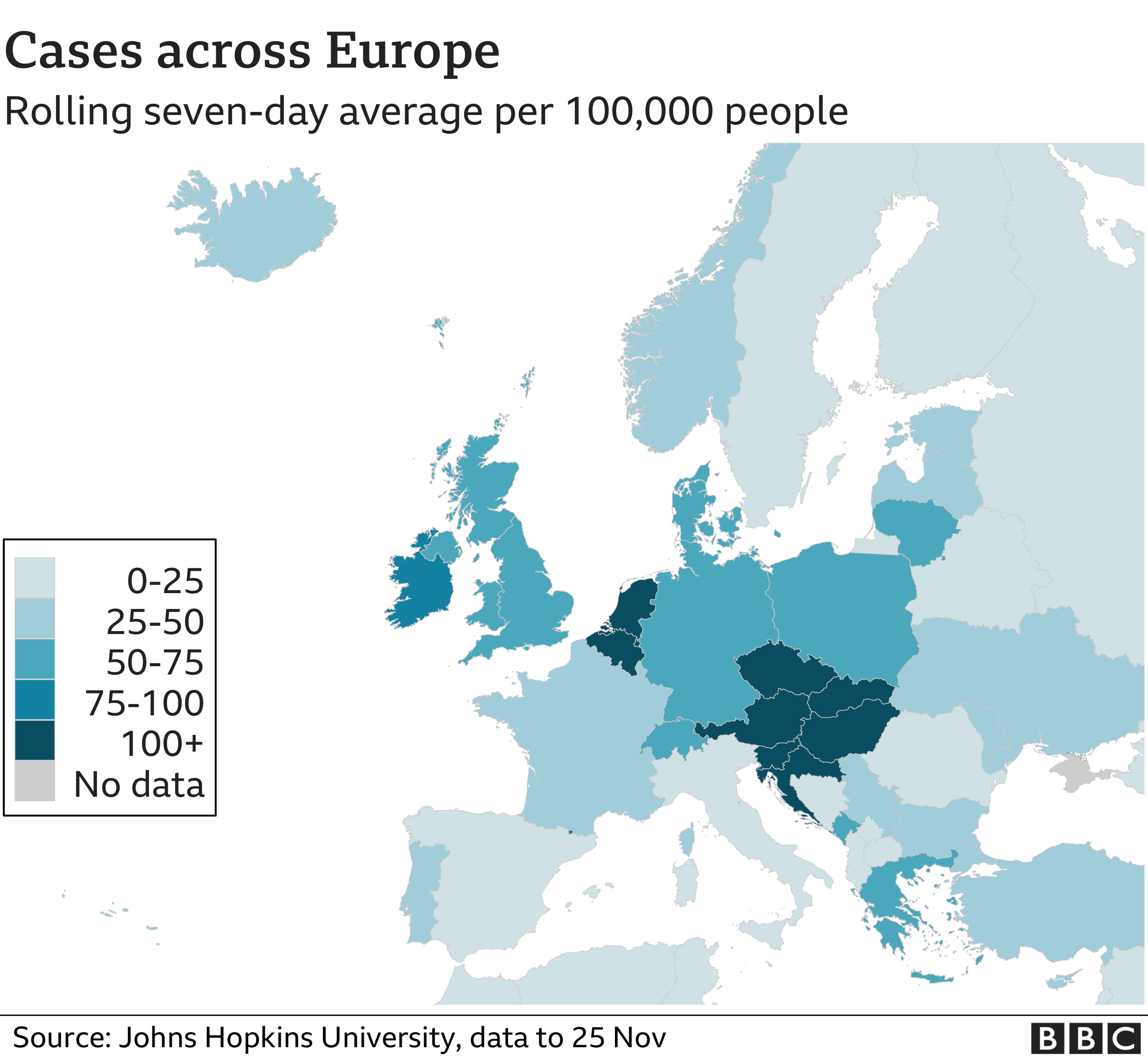

So, once Sunday’s votes are counted, the health minister will return to the grim business of counting the rising Covid cases, and he is likely to start thinking about what new restrictions might be necessary. He may also have to count out around CHF8bn (£6bn) for Switzerland’s nurses.
But the anger, fear, and social division born of the pandemic cannot be solved by a referendum or two, and the demonstrations are sure to continue, in Switzerland and across Europe.
This video can not be played
